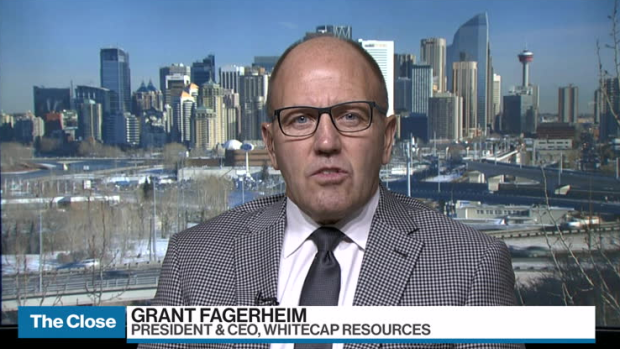Dec 18, 2018
Energy sector 'not looking for handouts': Whitecap CEO

A $1.6-billion loan from Ottawa is not what Alberta’s oil-and-gas industry needs - but “kudos for trying,” the chief executive of Whitecap Resources Inc., said Tuesday.
“The energy sector is not looking for handouts, it’s not looking for support in the form of loans,” Whitecap president and CEO Grant Fagerheim told BNN Bloomberg in an interview.
“It’s looking to build pipelines,” said Fagerheim, who added “kudos for trying.”
Alberta Premier Rachel Notley also blasted the loans, some of which are earmarked for exploring new markets, saying the “issue is not finding a market for our product.”
“This does not reflect the kind of responsiveness that we need to see,” Notley said in Calgary.
Notley’s government is increasing Alberta’s rail capacity for crude shipments and introducing production curtailments to minimize the province’s inventory backlogs. The moves are an attempt to minimize the discount Western Canadian Select crude fetches in comparison to West Texas Intermediate.
International and domestic oil prices were under pressure in Tuesday’s trade, with WTI closing at US$46.24 a barrel – and the Canadian discount widened to US$16.
The global market volatility and the Canadian discount has Whitecap “cautious and defensive” when it comes to its spending plans for the first half of 2019.
Ottawa’s loan announcement also struck Fagerheim as inconsistent, given the challenges of Bill C-69.
“The inconsistency of the message we find is that we’re talking about Bill C-69, which is to stop all pipelines, in essence,” said Fagerheim.
“Under the current C-69, as drafted, when you’re pulling so many people into that regulatory process, anybody can stall or stop the project at any [point] in the process.”
Natural Resources Minister Amarjeet Sohi told BNN Bloomberg earlier Tuesday that C-69 is part of the solution, not the problem.
“Bill C-69 will allow us to move forward with fixing that broken system and allow good projects to move forward,” said Sohi.
The minister blamed the Stephen Harper government for relaxing environmental regulations and public and Indigenous consultations, saying that has led to the current political divide over pipeline projects.
“It is our goal that we de-politicize and depolarize the opposition that exists to pipeline infrastructure projects that are so critical for the success of our country and for creating jobs and creating prosperity,” said Sohi.
But Fagerheim raised doubts that pipeline projects – particularly the government-owned Trans Mountain expansion – will get built in a timely manner.
“You would like to think that we could get it built by 2021 to get to the West Coast, but we’ll see the willpower of the current federal government,” Fagerheim said.
“Are they actually saying one thing and going to proceed through with it? Or are they saying one thing and doing another?"





